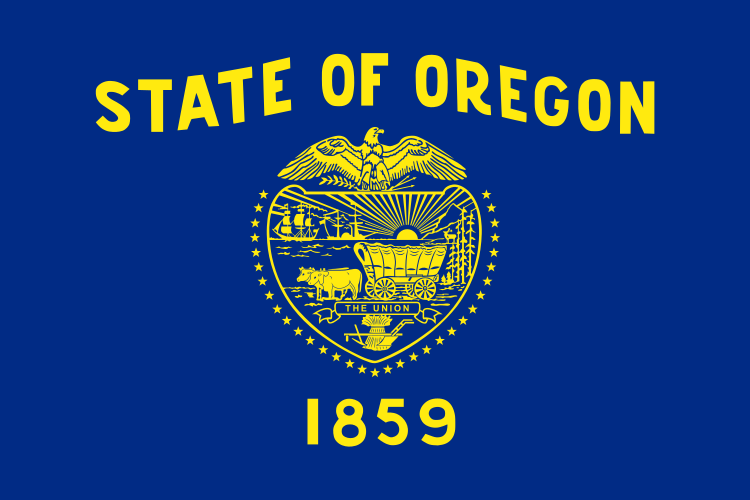 Is Direct Democracy in Oregon Too Much of a Good Thing?
Is Direct Democracy in Oregon Too Much of a Good Thing?
By Steve Holgate
Source: http://newsblaze.com/story/20080925091217tsop.nb/topstory.html
Source: http://newsblaze.com/story/20080925091217tsop.nb/topstory.html
Voters in Oregon's 1st Congressional District are taking the law into their own hands. In fact, so are voters throughout the state, and they have been doing it for years.
Oregon is one of 24 states that give voters the right to place proposed laws and constitutional amendments on the state ballot via petition.
Since 1902, Oregon voters have used the petition to change the state's political landscape. In 1908 they instituted the recall election, allowing citizens to remove elected officials from office before the expiration of their terms. Another early initiative authorized one of the nation's first open primaries, giving voters the power to choose their party's nominees for office.
In recent years, Oregon voters have placed on the ballot and passed several important measures, including limits on property taxes, increased rights for crime victims, term limits for legislators, and a controversial measure on physician-assisted suicide.
But many Oregonians are wondering if this long-respected institution has become too much of a good thing.
BALLOT INITIATIVES MUSHROOMED IN RECENT YEARS
The initiative process was used sparingly for its first 85 years, averaging about one measure per year. Since the 1990s, it has mushroomed, with 20 initiatives on the ballot in 2000. In 1996, more than 200 ballot measure petitions were circulated in the state, with only a small minority gaining enough support to appear on the ballot. The use of initiatives has dropped a bit since 2000, but there were still, on average, about eight initiatives each in 2002, 2004 and 2006.
Some recent citizen initiatives were judged unconstitutional and overturned by the courts. On other occasions, approved ballot measures contradicted each other or were worded so vaguely as to be unworkable.
A cloud over the process has been cast by the activities of a man named Bill Sizemore, who has sponsored more initiatives than anyone else in the state's history, including one with the greatest impact of any Oregon ballot initiative in decades: His 1996 ballot measure drastically restricted property tax increases. More recently, a court found he had used forged signatures and filed false financial reports during his initiative efforts. It ordered his organization to pay more than $3 million in damages. Although portions of that ruling were set aside by an appeals court, the litigation damaged Sizemore's credibility with some voters.
Despite these problems, most Oregonians know some recent ballot measures have proven successful and remain an important check on government officials. Voters are seeking reform, rather than abolition, of the initiative process. Reforms already enacted include a ban on paying petition circulators for each signature gathered. Perhaps ironically, this reform was achieved through a ballot initiative.
In 2007, the Oregon Legislature created further restrictions, including a requirement for registering and training petition circulators. Supporters of the reforms say they will give new relevance and life to a cherished example of direct democracy. Opponents call them unjustified restrictions on free speech.
The 2008 ballot will be the last before the new measures take effect.
MEASURES ON THE 2008 BALLOT
Eight measures - five sponsored by Sizemore - are on the upcoming ballot. One would limit bilingual classes in public schools. Others would reduce state revenues by increasing tax deductions, require teachers' pay increases to be based on student achievement rather than teacher seniority, require harsher sentences for criminals (two initiatives), dedicate more money to public safety, and harmonize voting eligibility for school board elections with eligibility requirements for other state and local elections.
The most far-reaching measure might be a proposal to eliminate the traditional party primaries, which were established by one of the first successful initiatives a century ago. Instead of holding a separate primary election for each party, Oregon would hold only one joint primary, with the top two nominees going forward to the November general election, regardless of party affiliation. Proponents say it would encourage more moderate candidates. Critics counter that one of the major parties could end up with no candidate on the November ballot.
Whatever the fate of this year's ballot initiatives, 2008 could be the last year that Oregon voters face such a range of petitions and ballot measures. Whether that is good or bad is still a subject of debate.
This article is part of America.gov's continuing coverage of seven of the 435 U.S. congressional districts during the 2008 campaign. Each offers a different prism from which to view U.S. politics. For more information, see U.S Elections - State and Local ( http://uspolitics.america.gov/uspolitics/elections/stateandlocal.html ).
Source: U.S. Department of State






No comments:
Post a Comment